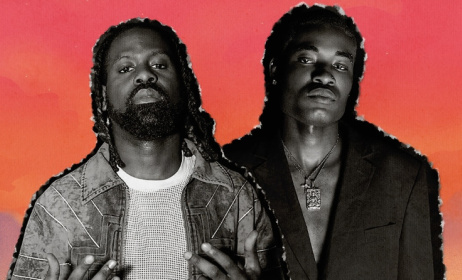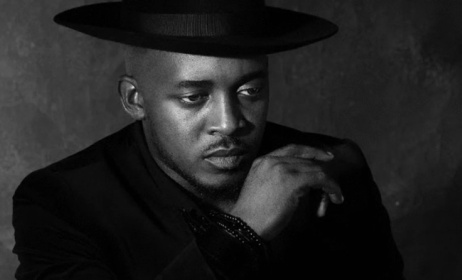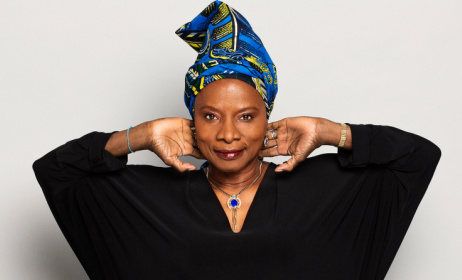Africa's next top femcee
By AK
Arguably, it would be correct to point out Jean Grae as Africa’s most accomplished export to the bastion of hip-hop. Born in South Africa as Tsidi Ibrahim, her budding talent germinated and flourished in the rap mecca of New York City, where she was raised. This daughter of South African jazz musician Abdullah Ibrahim (Dollar Brand) didn’t hone her skills in the elite Fiorello H. LaGuardia High School of Music and Performing Arts in Manhattan, where she majored in vocal performance; her sublime lyrical skills have been cultivated by experience and talent that sought creative expression from 1996 until now.
 New York-based, South African-born rapper Jean Grae.
New York-based, South African-born rapper Jean Grae.
Jean Grae’s rapping ability is such that she is NOT your quintessential female emcee, but a rhyming veteran that can spit rings around most of the contemporary male rappers today. If she is not the best femcee there is, she’s within spitting distance of that title.
The notion of the African femcee is inextricably linked to the equally important but totally separate concept of the African woman. The world has changed dramatically since the days of Queen Latifah and MC Lyte and the femcee is on rap’s endangered species list. However, this dearth of capable female rappers or universally acknowledged femcees in the mold of Latifah et al was further impacted by the decline in the commercial viability of rap music in the United States in 2005. No rap albums were among the top ten sellers in 2006.
This same period coincided with the rapid development of indigenous African hip-hop, since the same disaffection with the lyrical content and uber-materialistic philosophy of hip-hop spread through African suburbs and ghettos like it was a pathogen designed by the Umbrella Corp and codenamed the ‘souljahboykillmenow-X1′. Forget Milla Jovovich, rap needed an intervention - a queen bee to beam down from the mother ship to the Motherland. If only…
‘L’art pour l’art’ (or art for art’s sake) works pretty well if you are French or living in one of the so-called socialist paradises of Europe. In reality, in Africa time is money, studio sessions/money, beat makers/money, producer/money, even the power supply is a constant variables that has an effect on your ability to climb to the top of the food chain. So if the odds are that daunting for the guys, what about the ladies? This is where the concept of the African woman rears it’s pretty little head.
Neal Postman wrote in his book, Amusing Ourselves to Death, his belief that the attention span of humans is decreasing as modern technology, especially television, increases. The African woman is almost always historically ignored anyway and her dreams, hopes and aspirations are a mystery, not only to her sons and fathers and lovers, but also to the world itself. Her tale is spun by others as part of a universal tale of feminine disempowerment that only manages to capture the attention of a few while to the majority, it’s just so much ‘white noise’ (pun intended).
It was Dr. Claudette Carr who said the beauty of Blitz the Ambassador is that he breaks down a mostly inaccessible debate on African development through hip-hop. The discussion veered towards the referencing of the IMF (International Monetary Fund) in his rhymes and it was enlightening to note that the IMF is more likely to be keynoted by South Americans, Latin Americans and people from other places - the organization’s shadowy imprint is an existential fact of their daily life. If we hold it to be true that the sum total of a man is his experience minus his vanity, then where do we place the sum total of the female experience and by extension the African woman’s experience? Because only by acknowledging its worth then can one’s attention be caught, the artistic goals fulfilled and cash registers ultimately ring.
Africa’s next top femcee has to battle against entrenched institutional bias and mind-blowing B.S. in order to get a foothold in a very male-dominated industry, but she is battling in an arena that is sympathetic to the skills she brings to the table. K’Naan, Blitz, Sarkodie, Nneka and M.I. are not all there is or should be to this global conversation surrounding the signs and times of hip-hopdom, Africa has an embarrassment of riches to offer in terms of topical variety and ability.
Originally published on 26 September 2013 on Africanhiphop.com.






























Comments
Log in or register to post comments